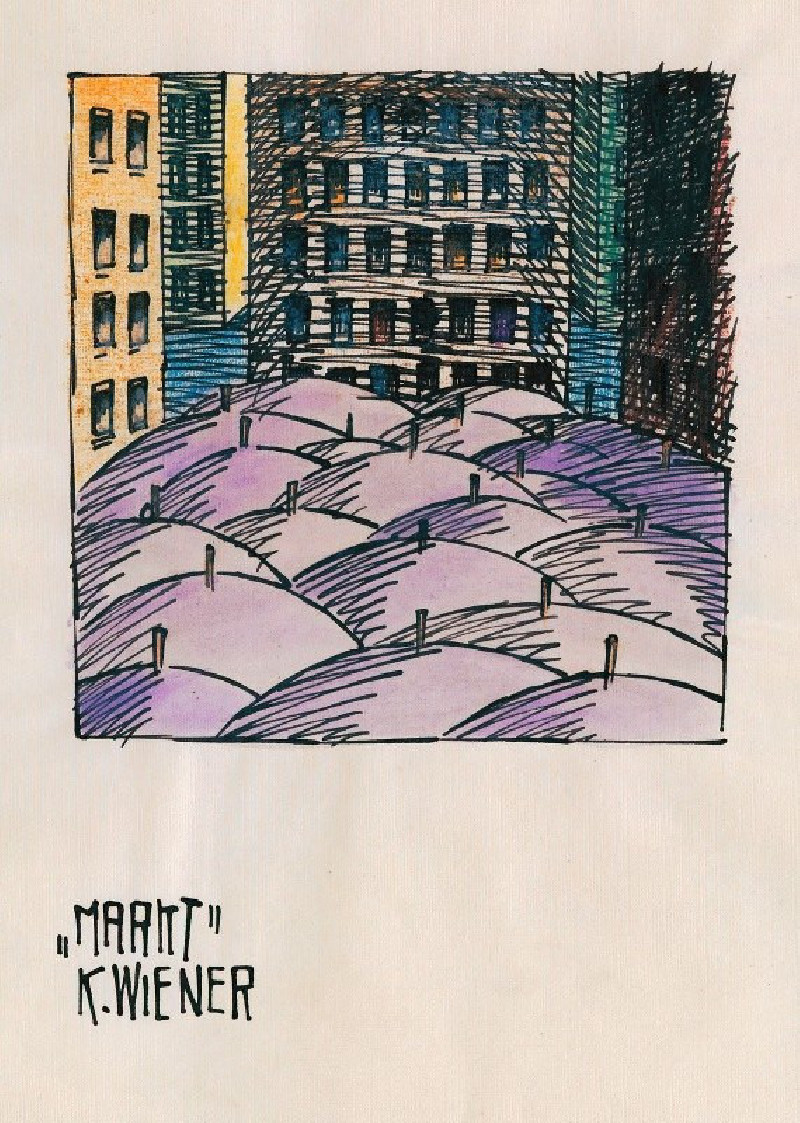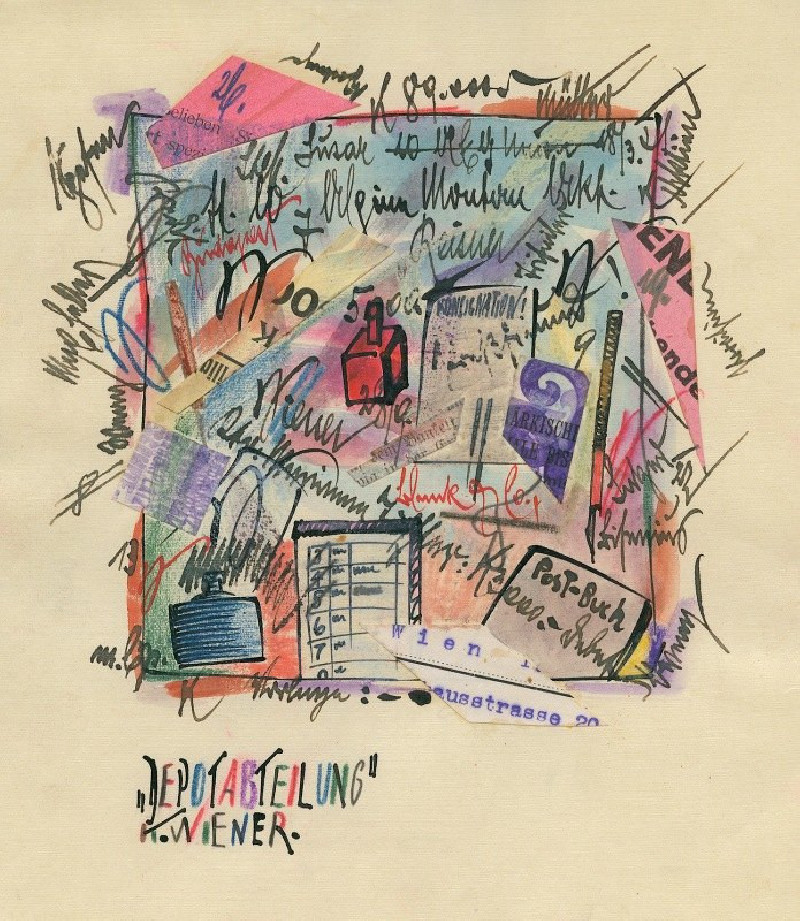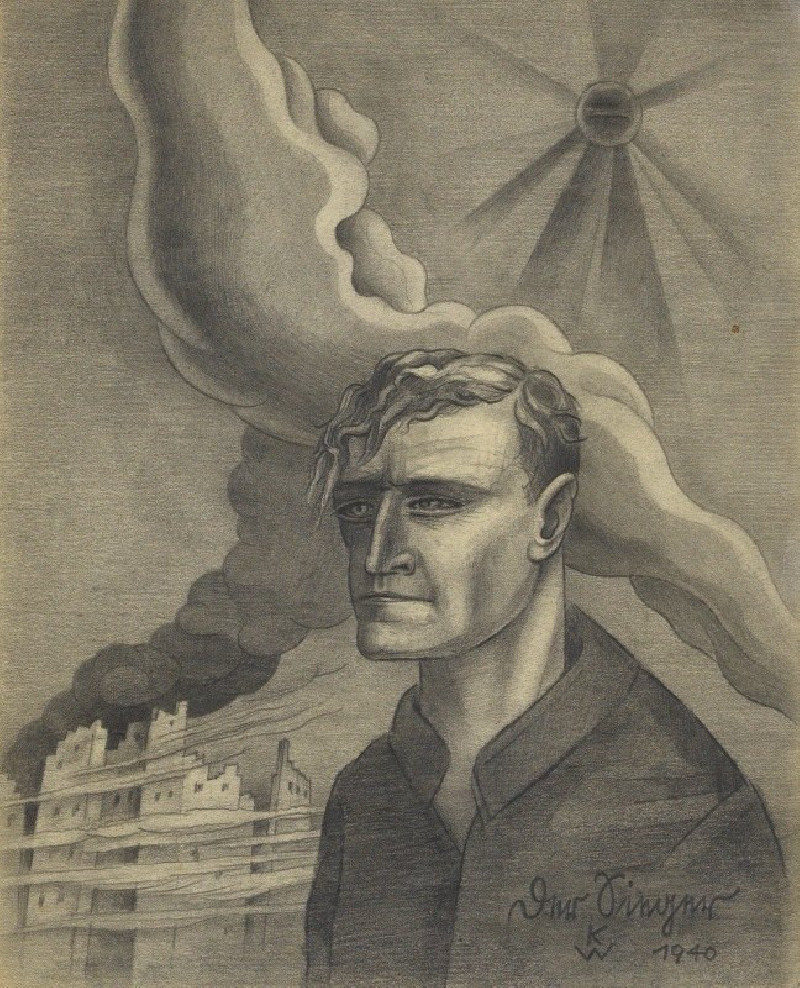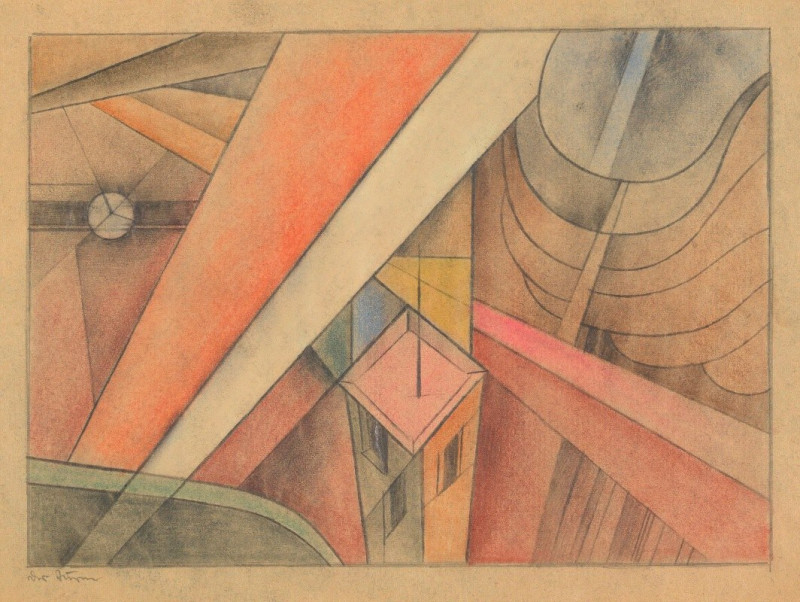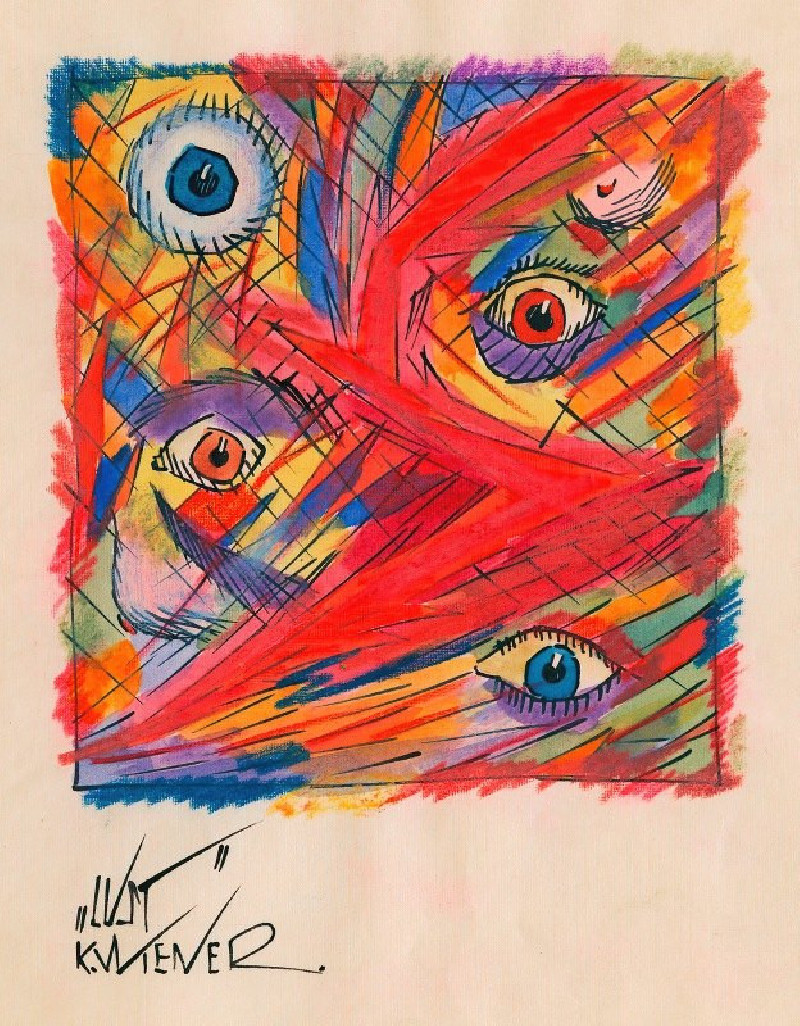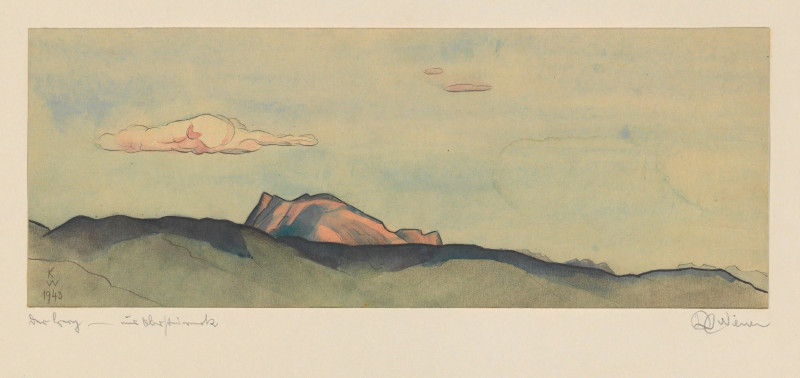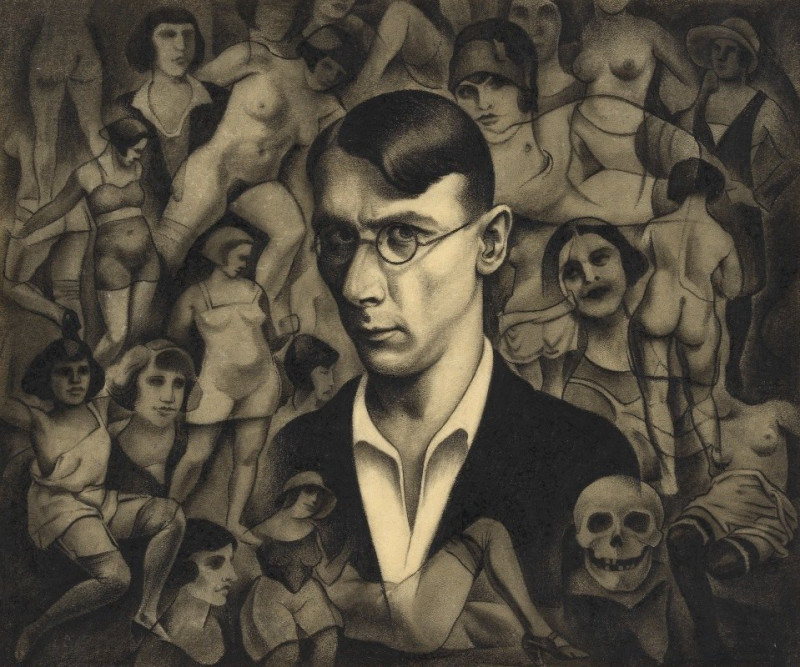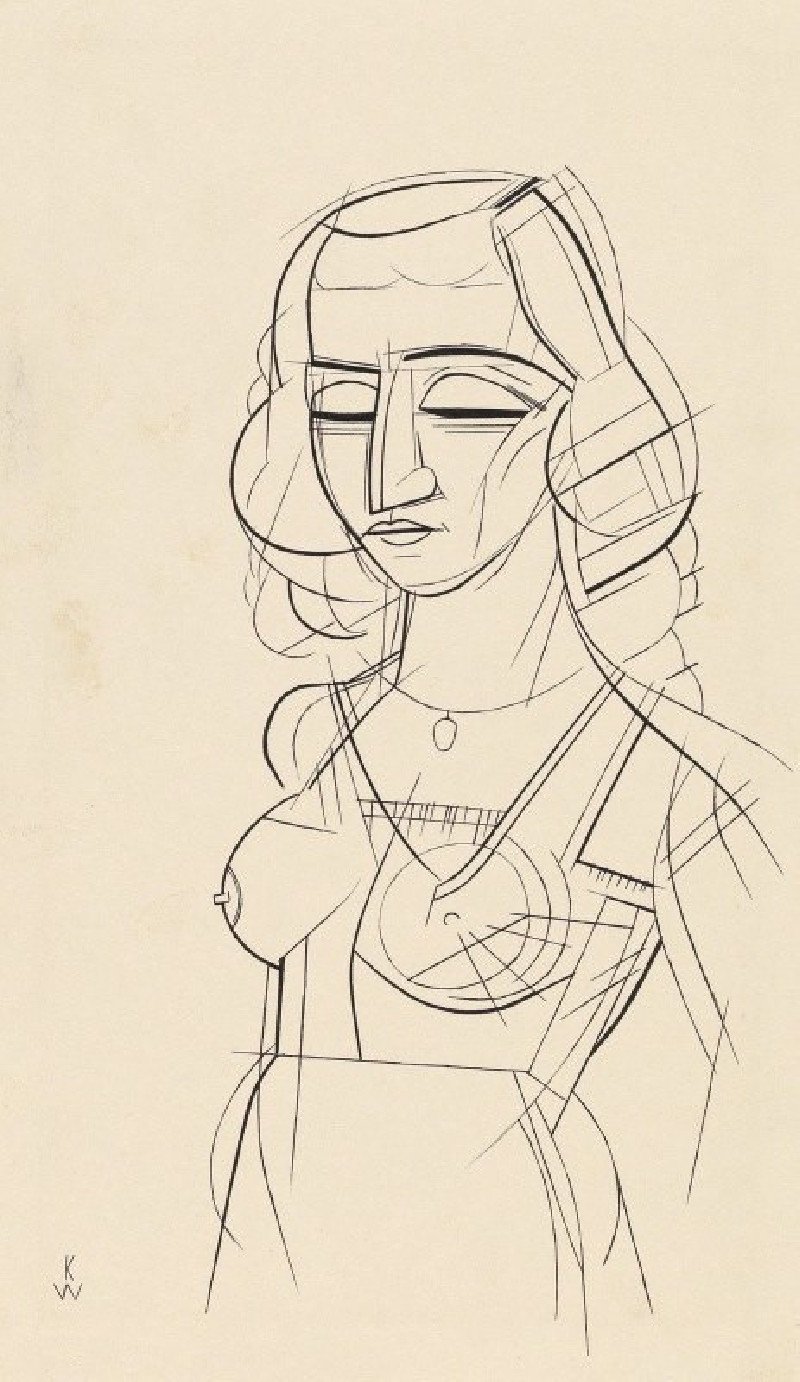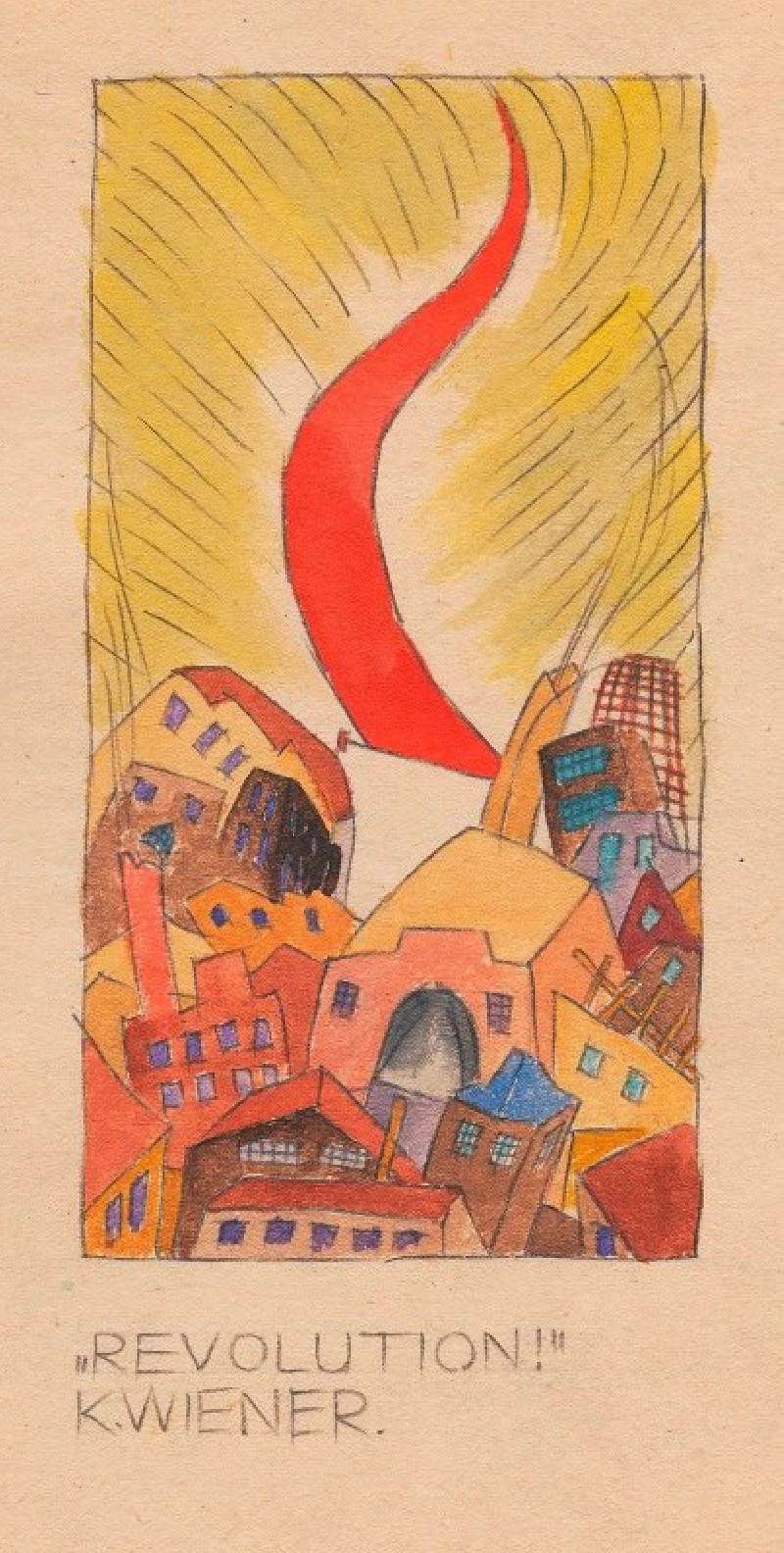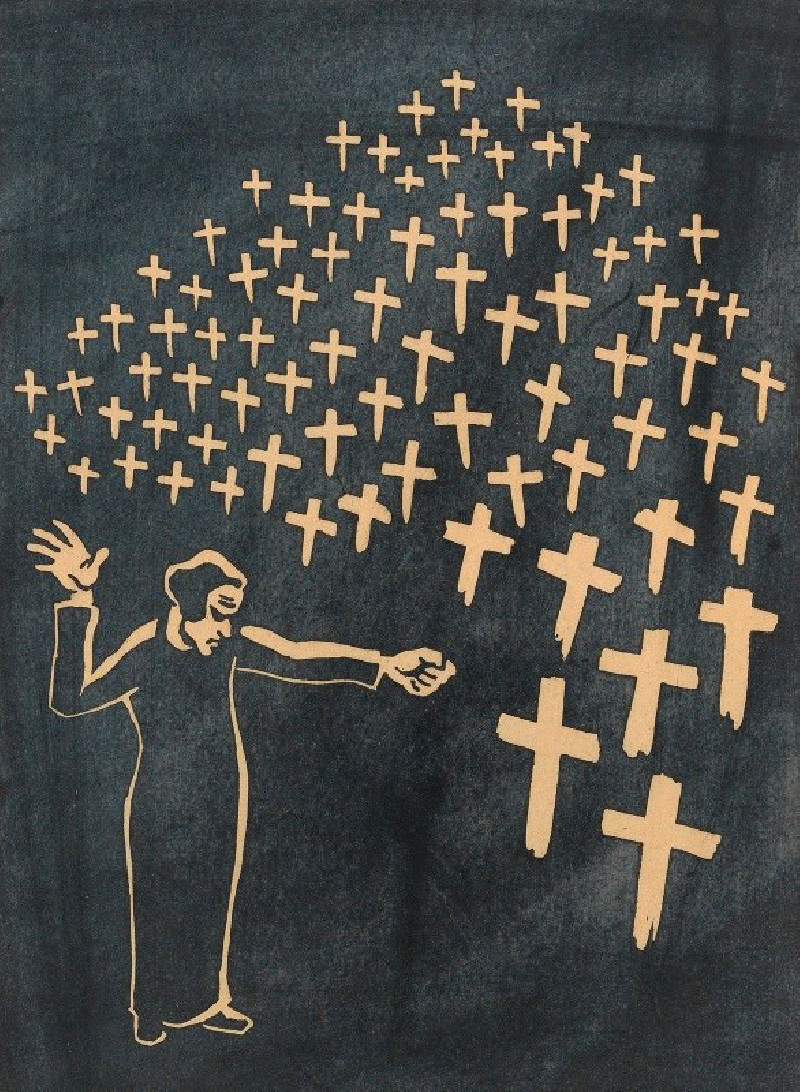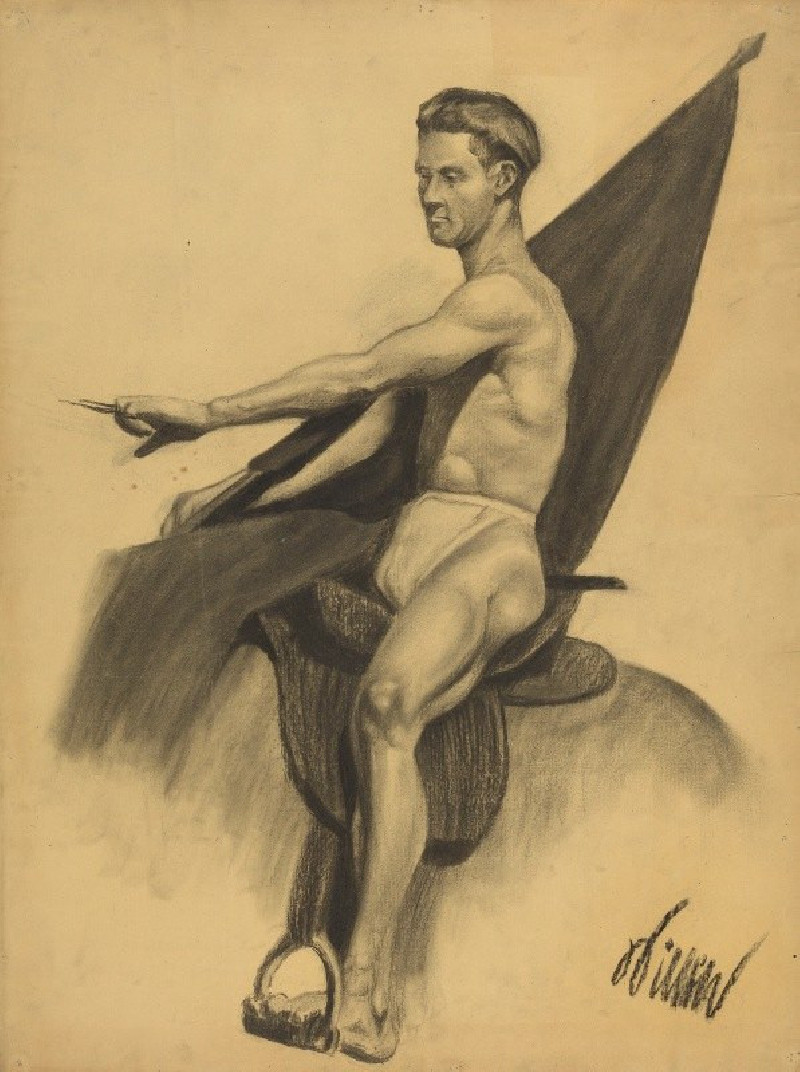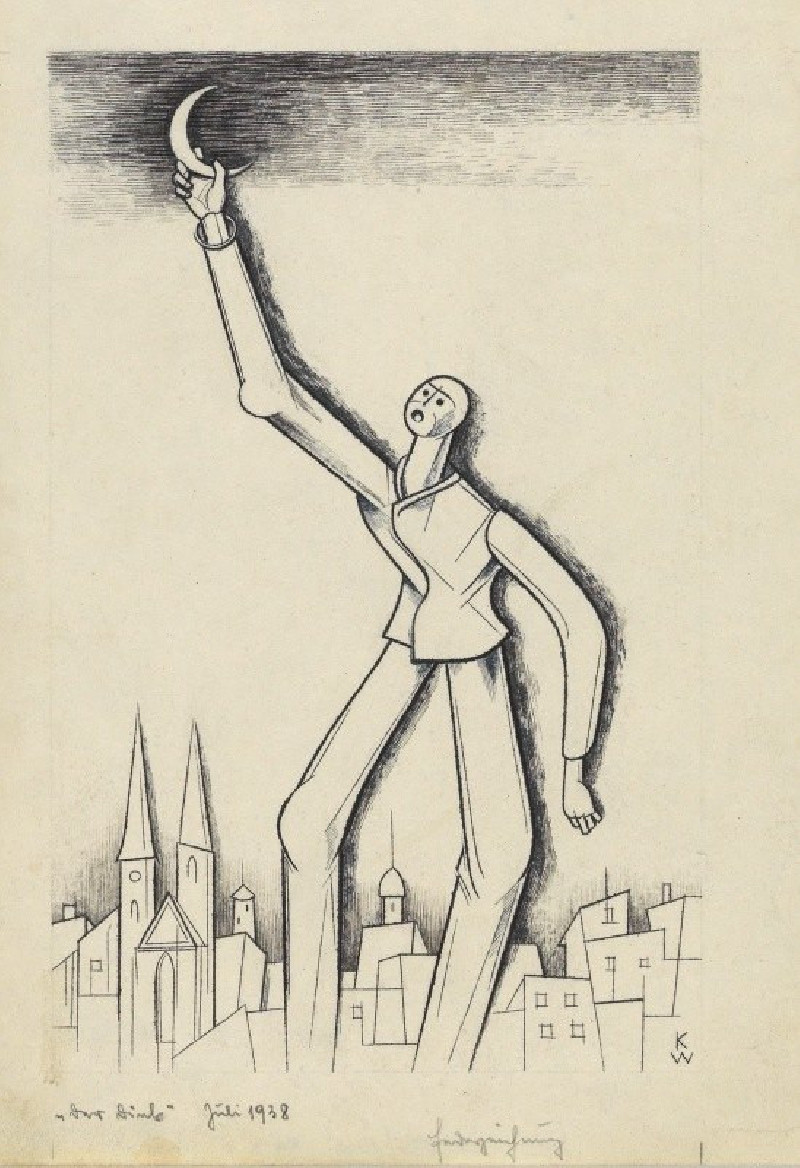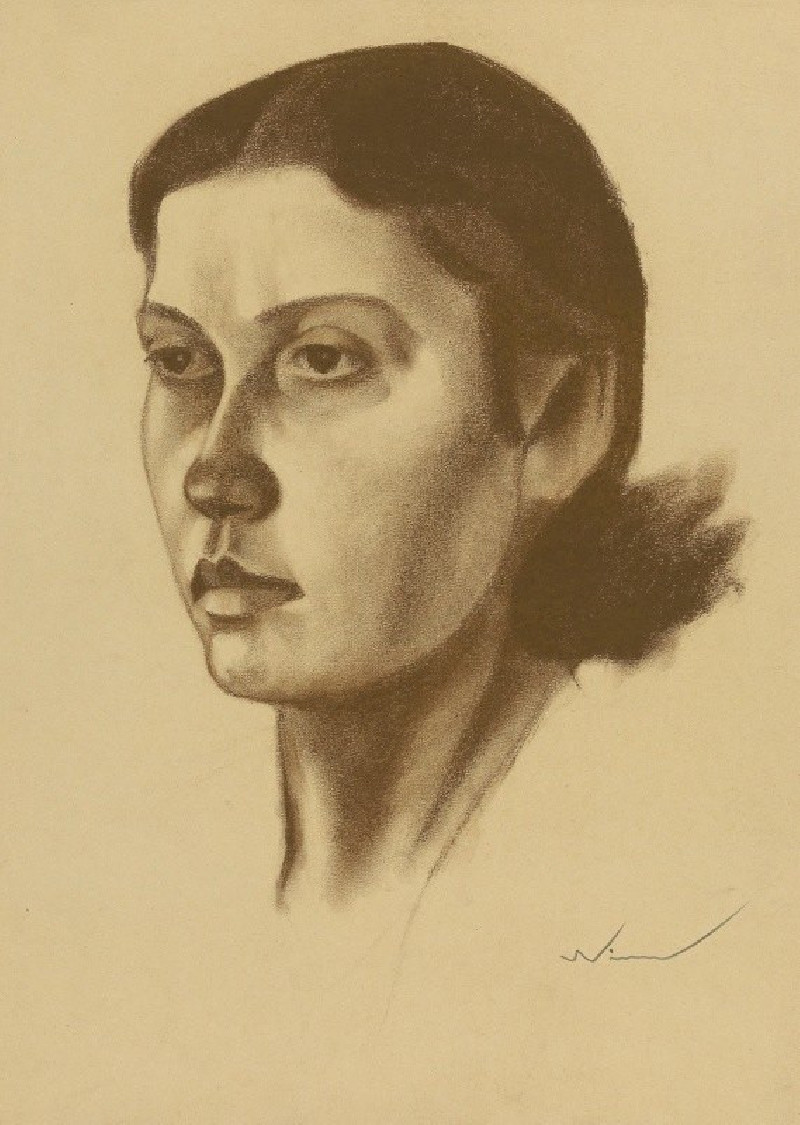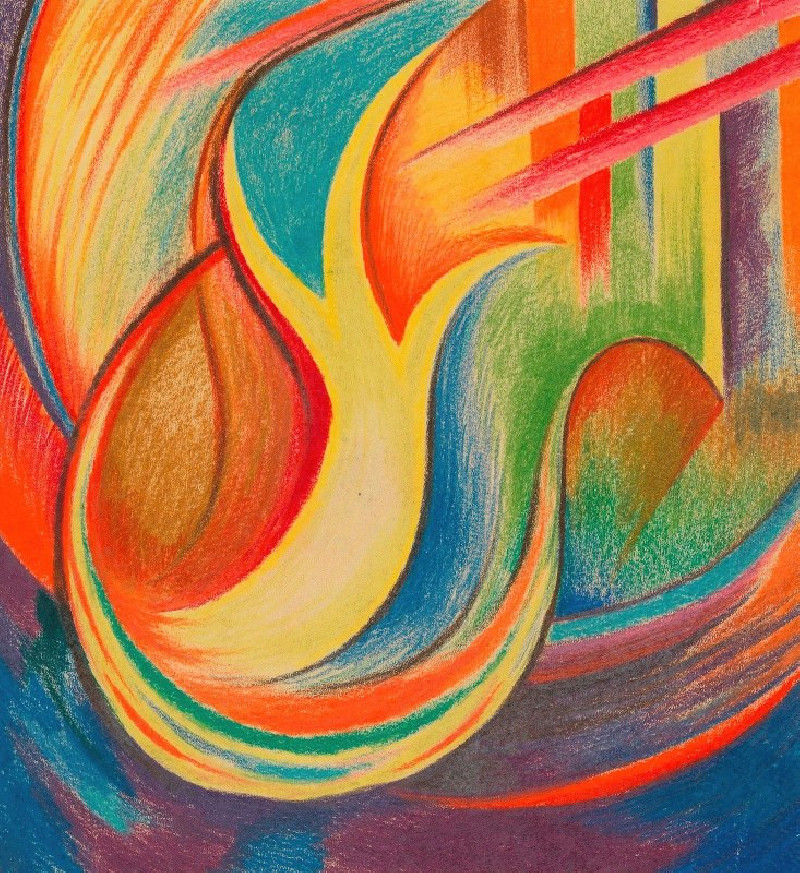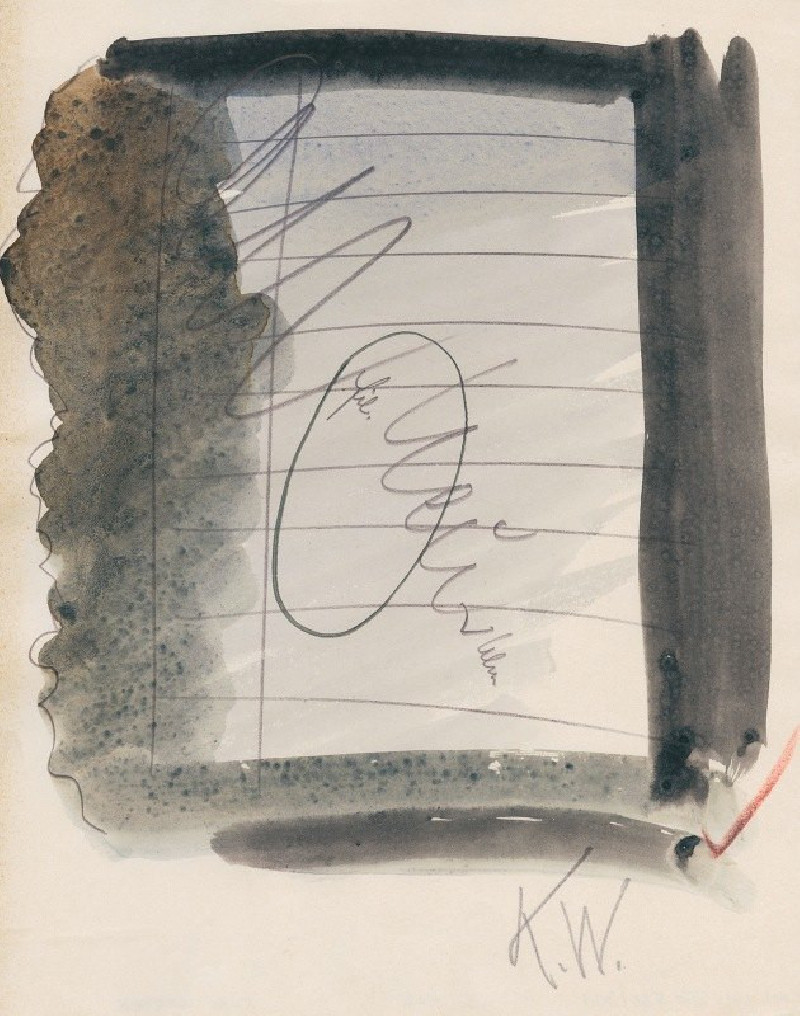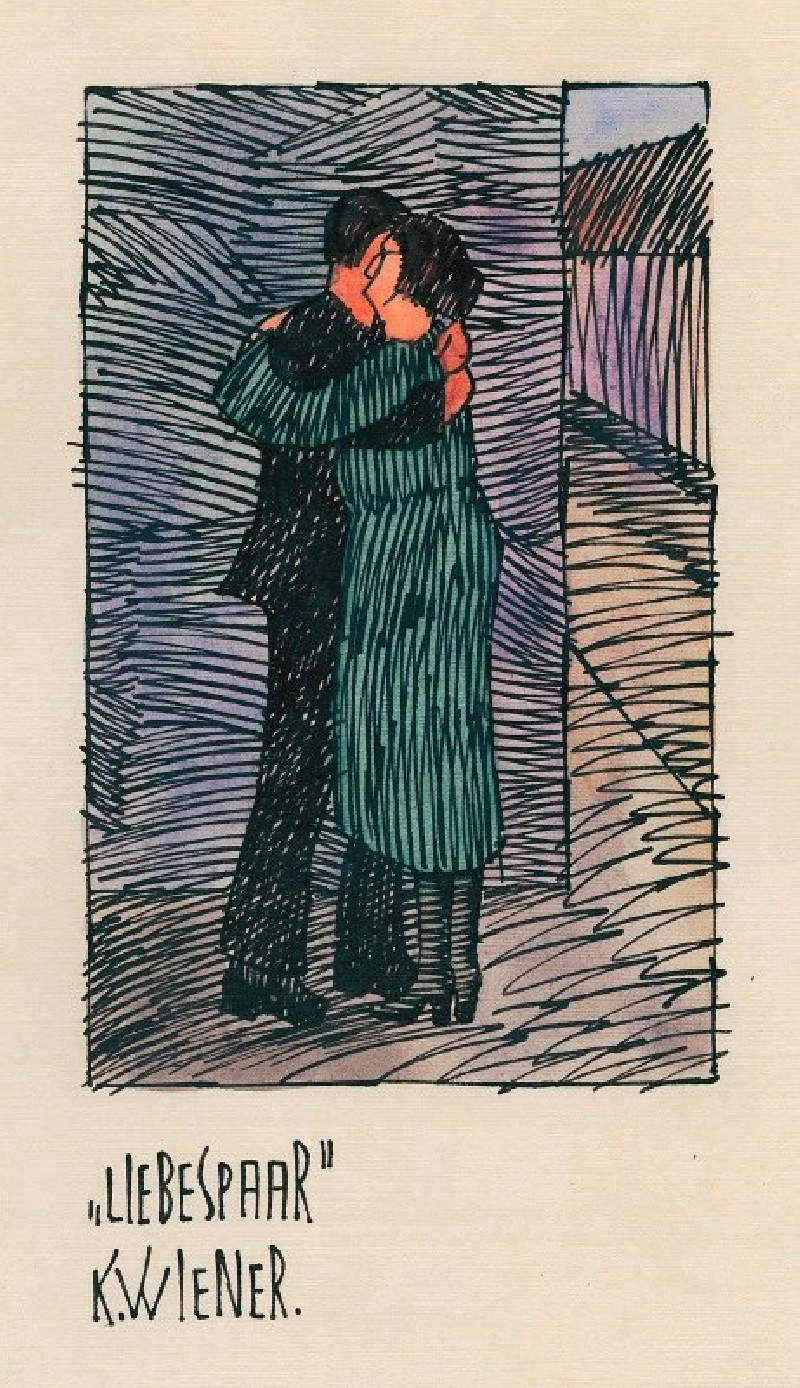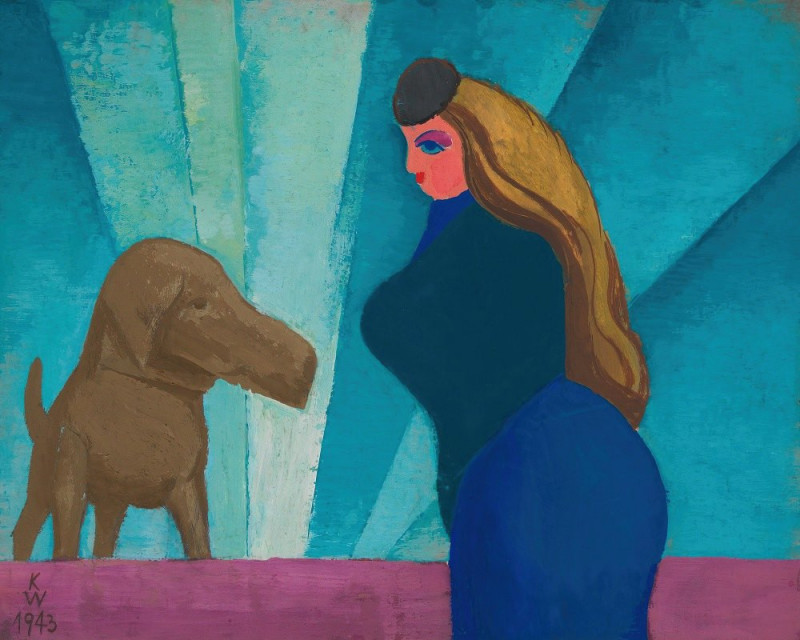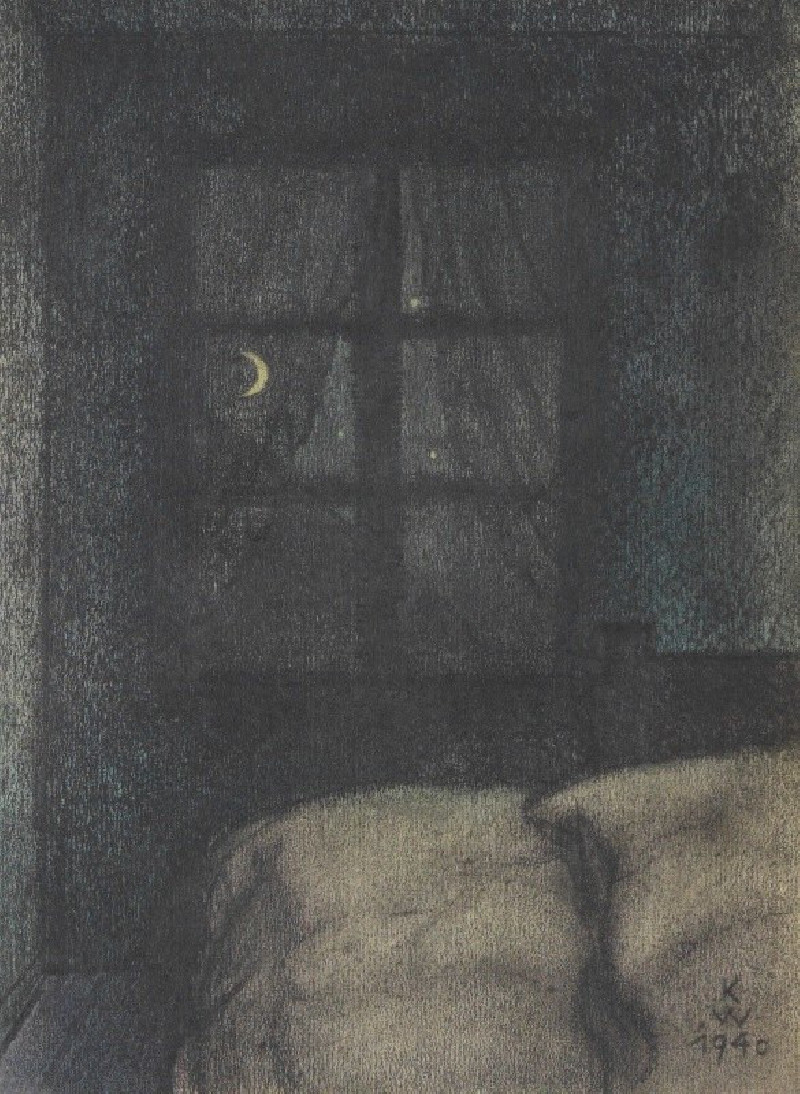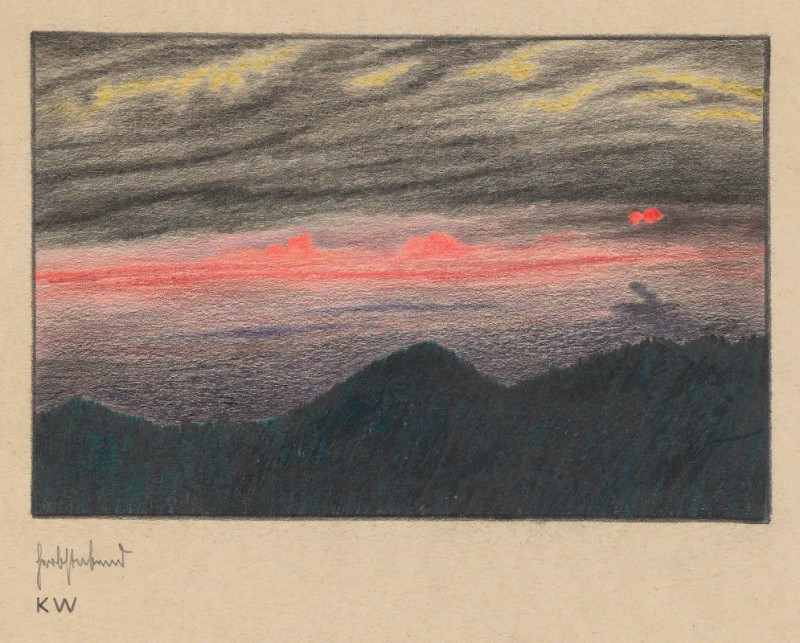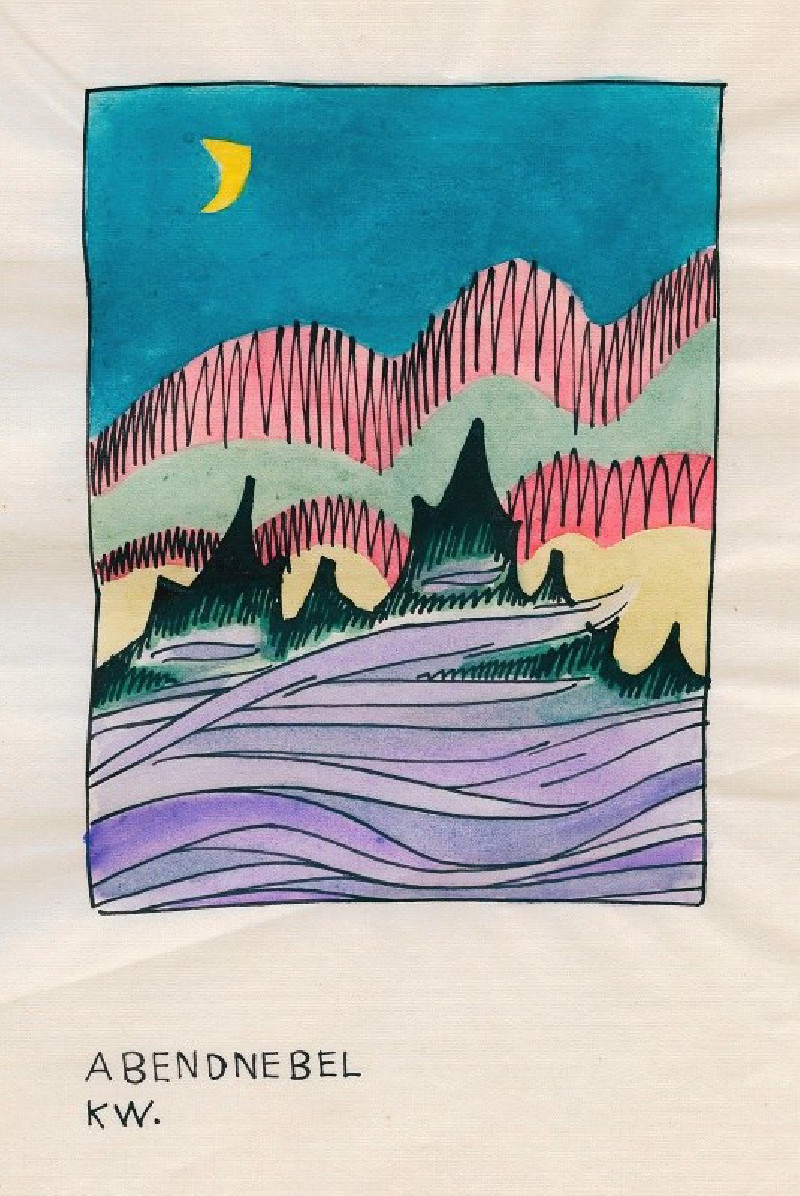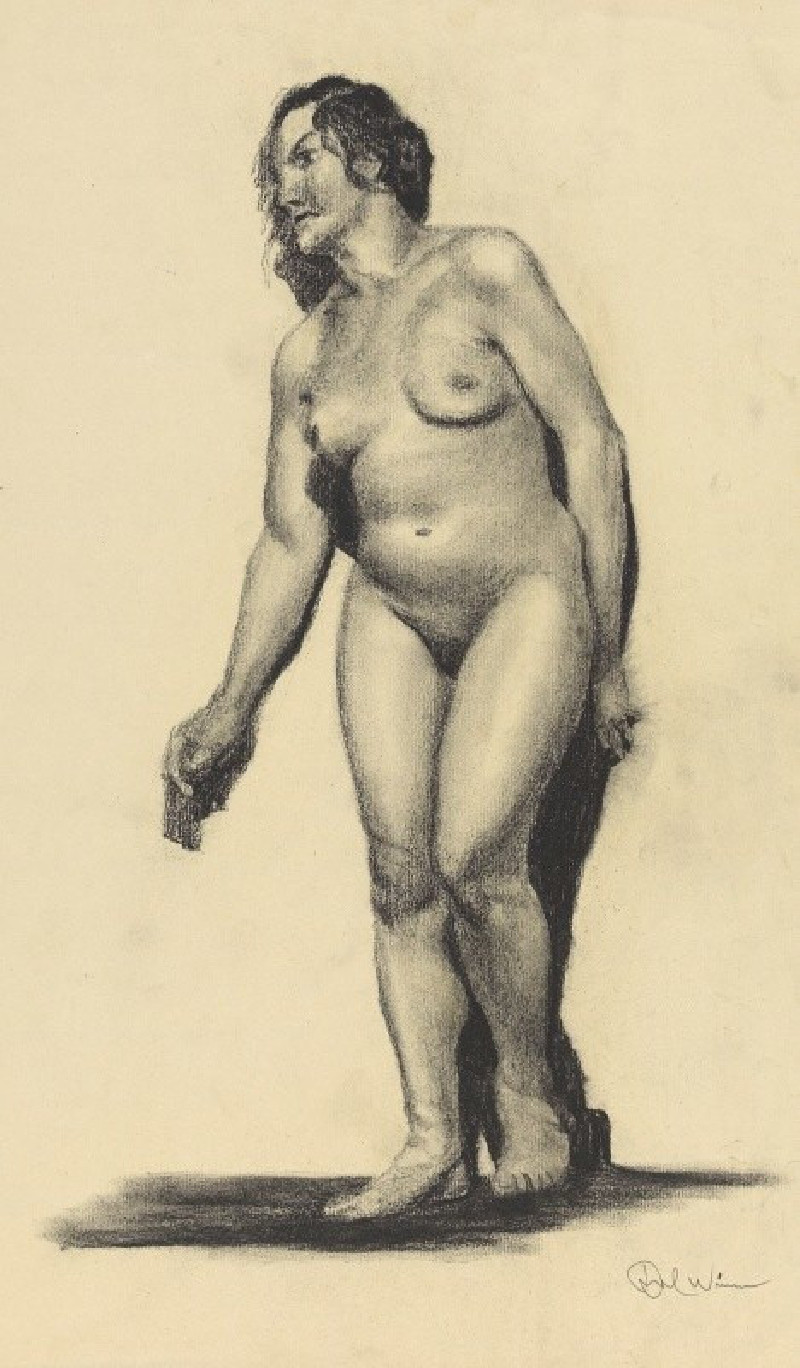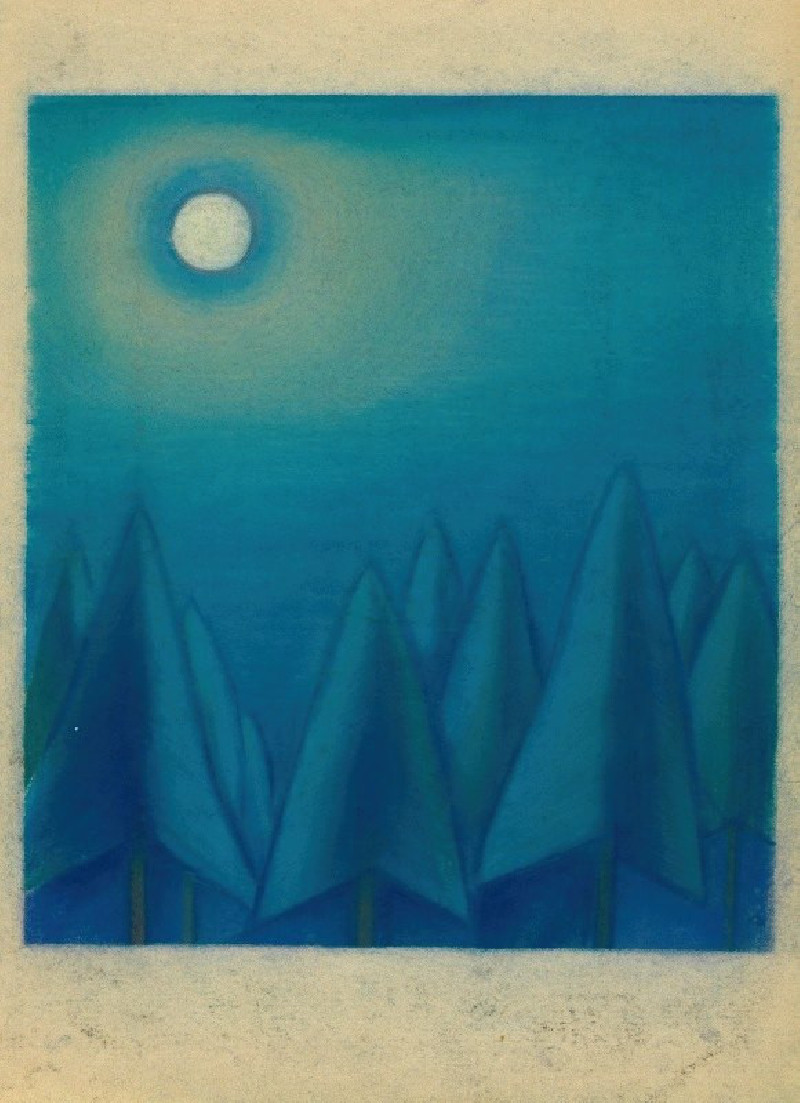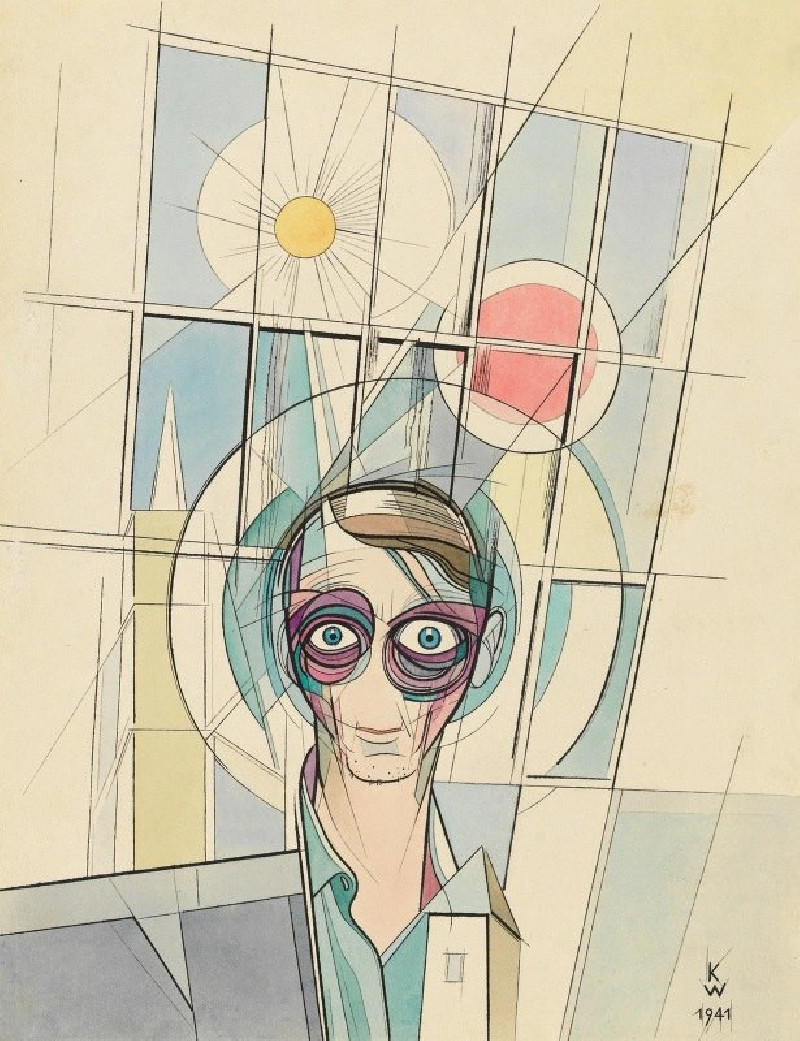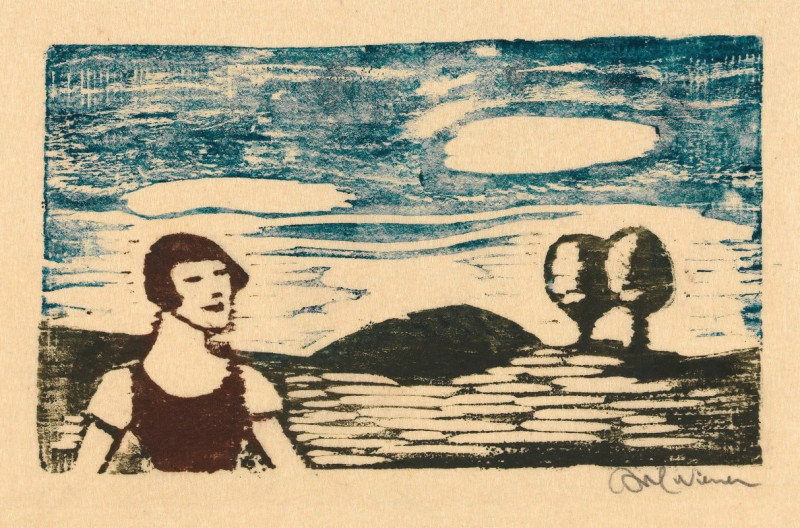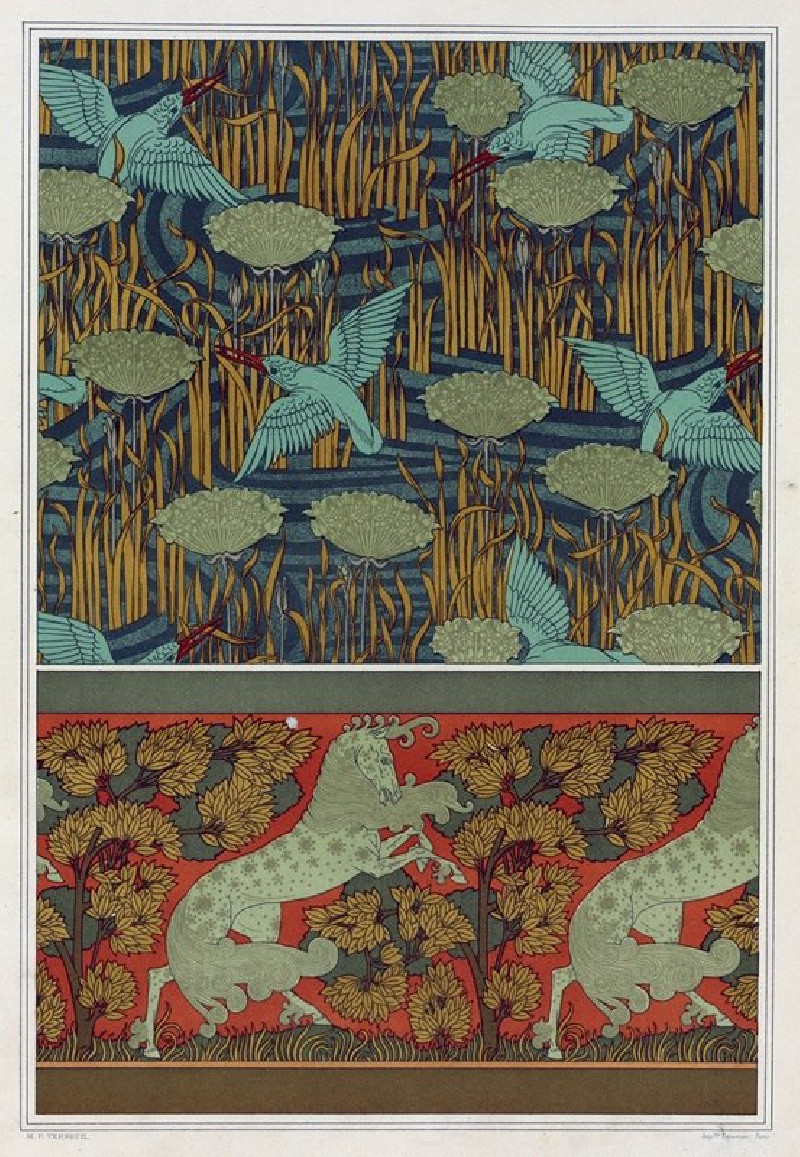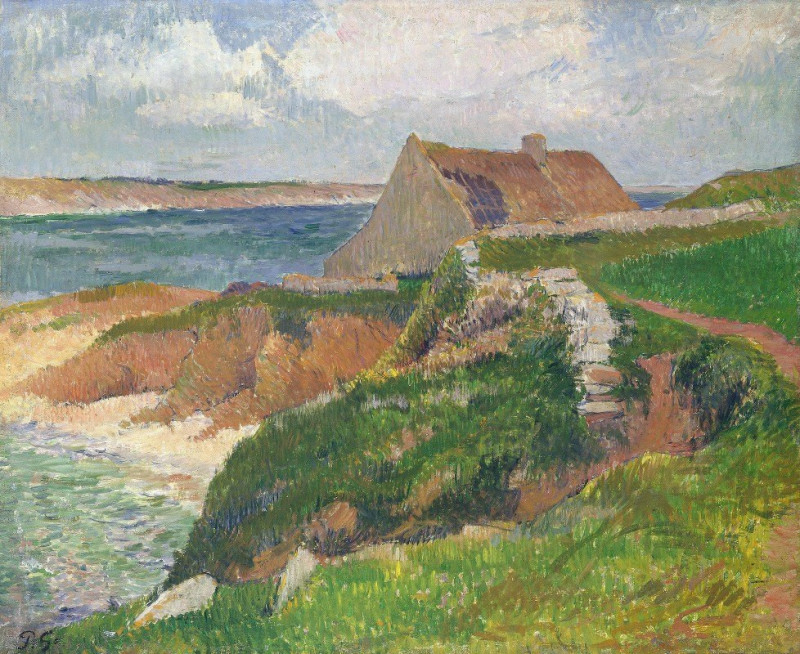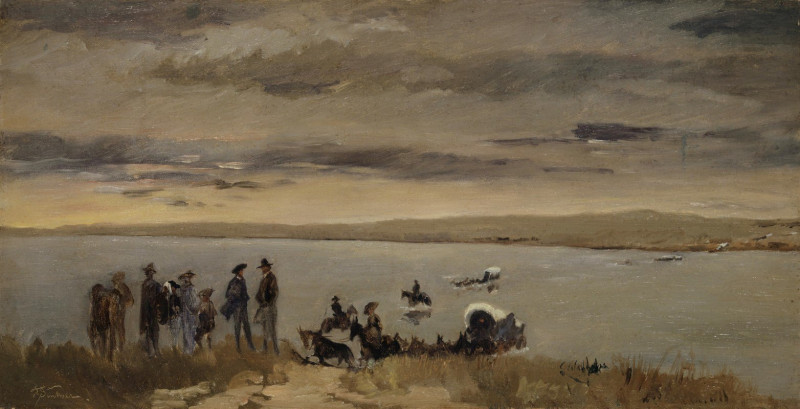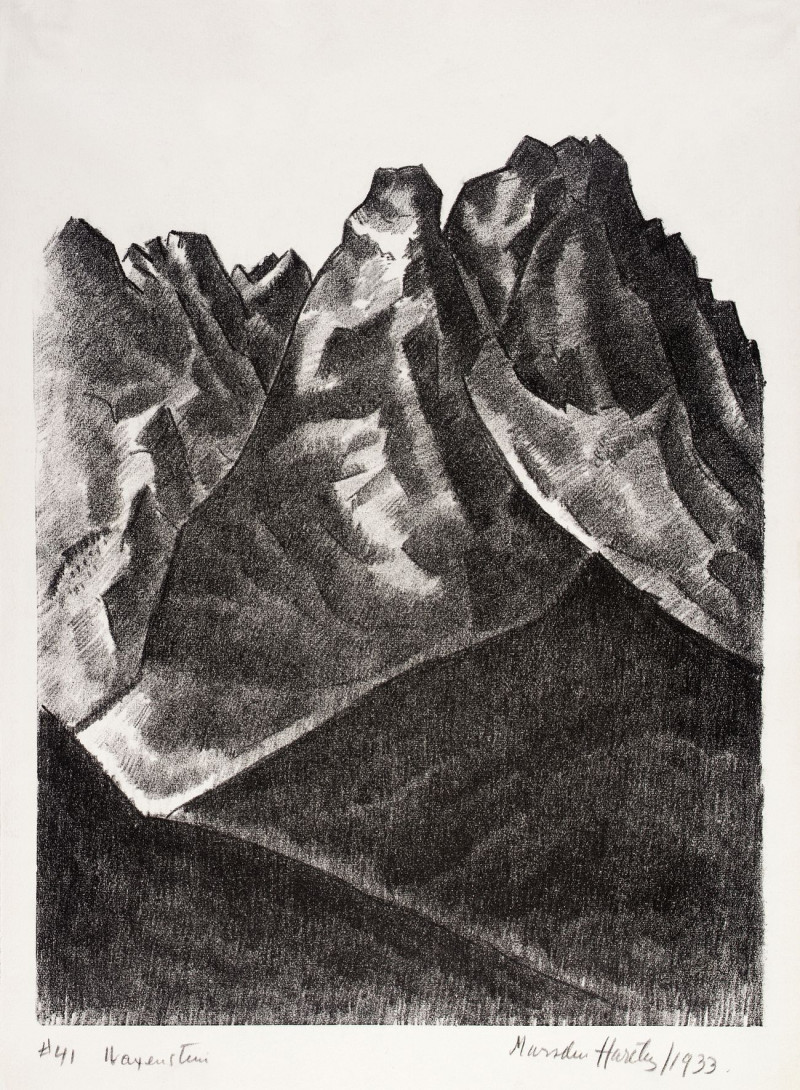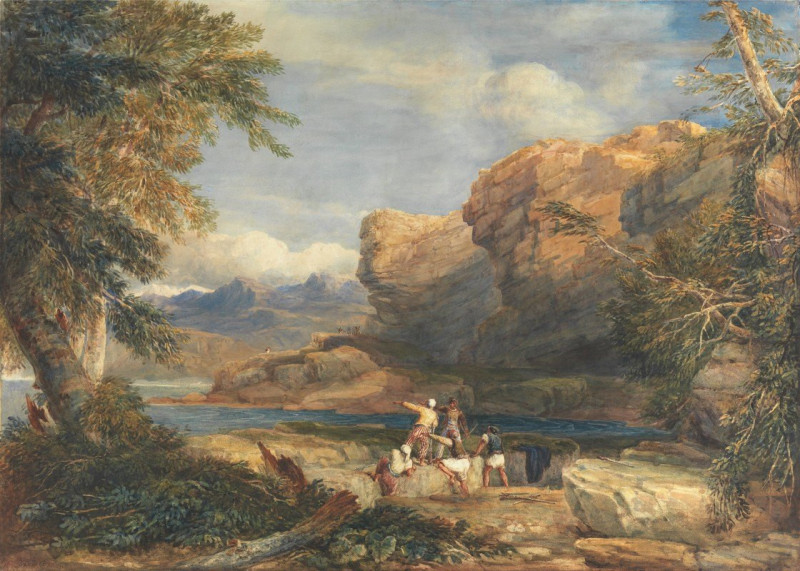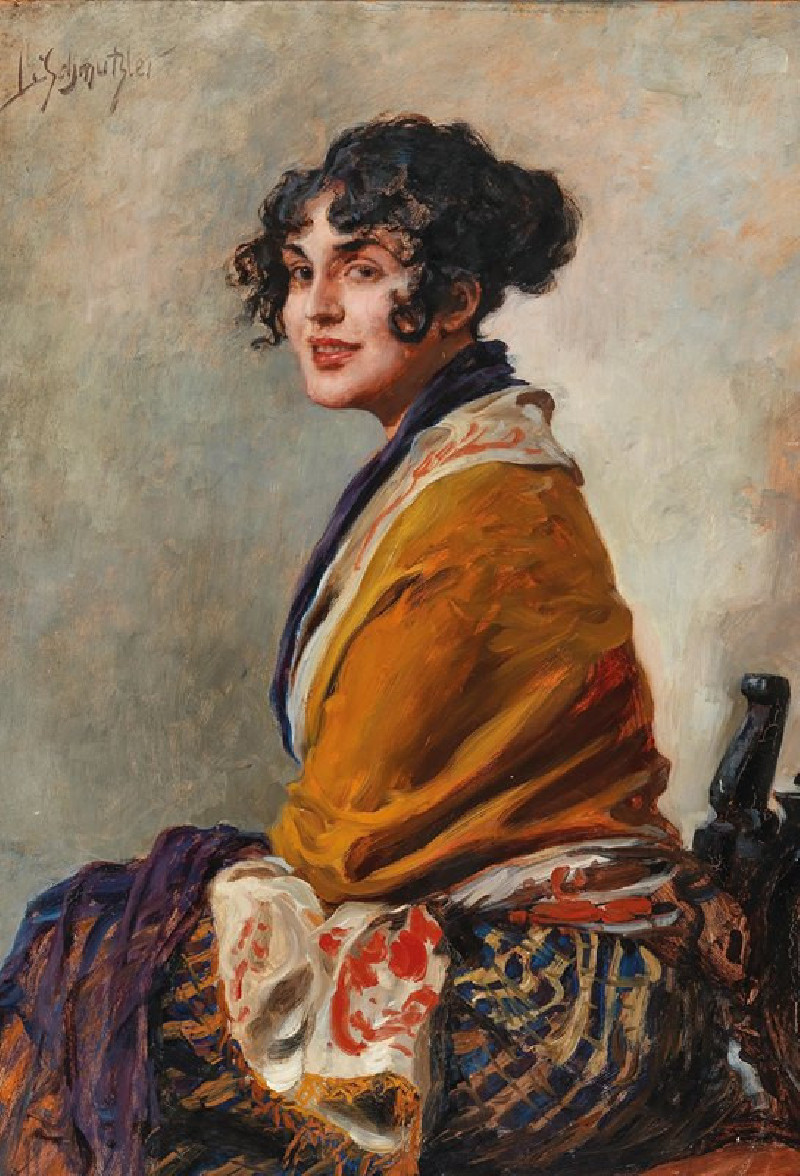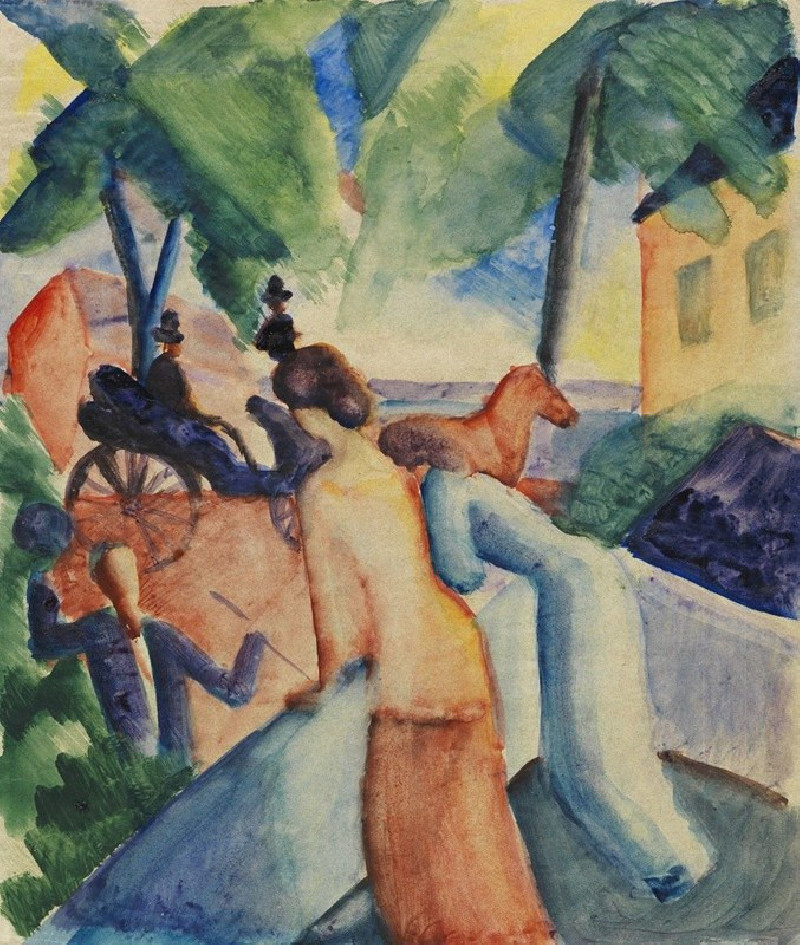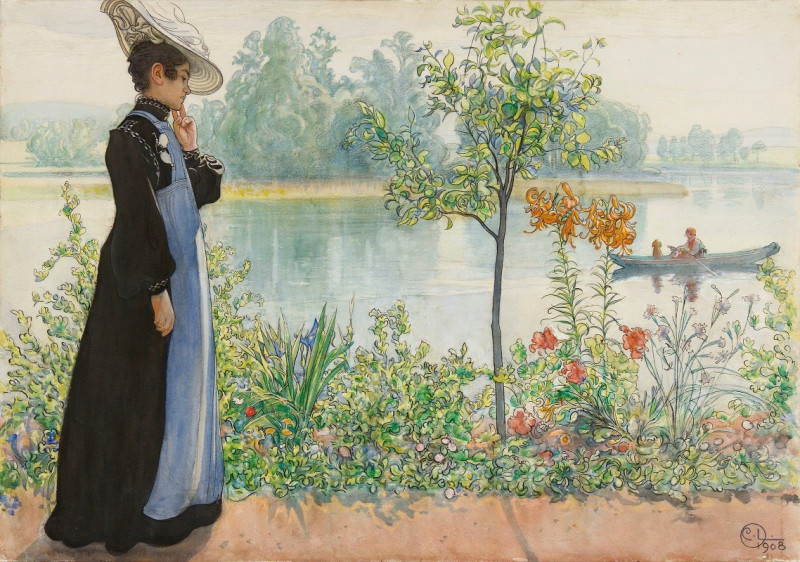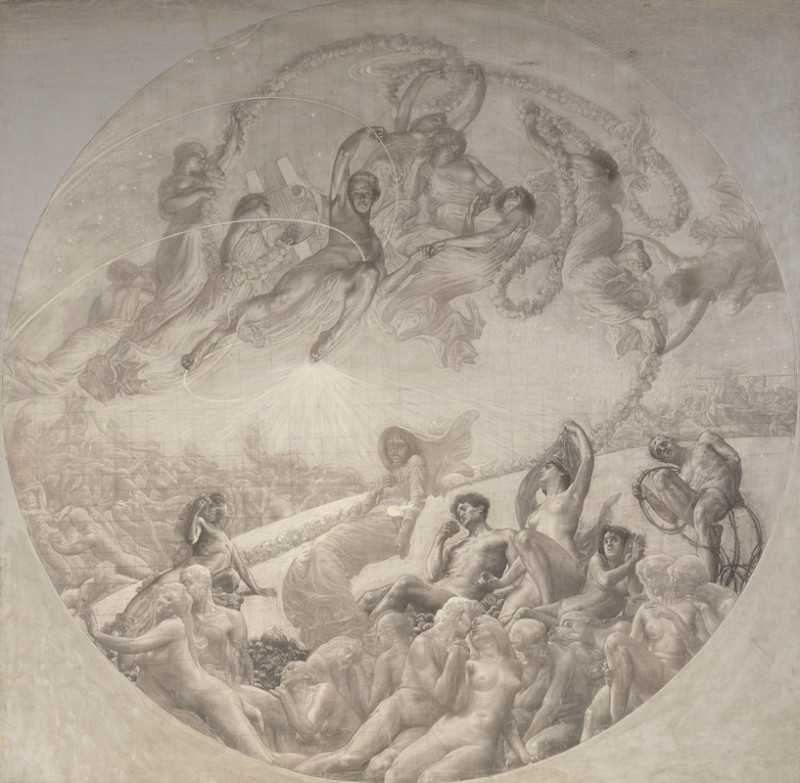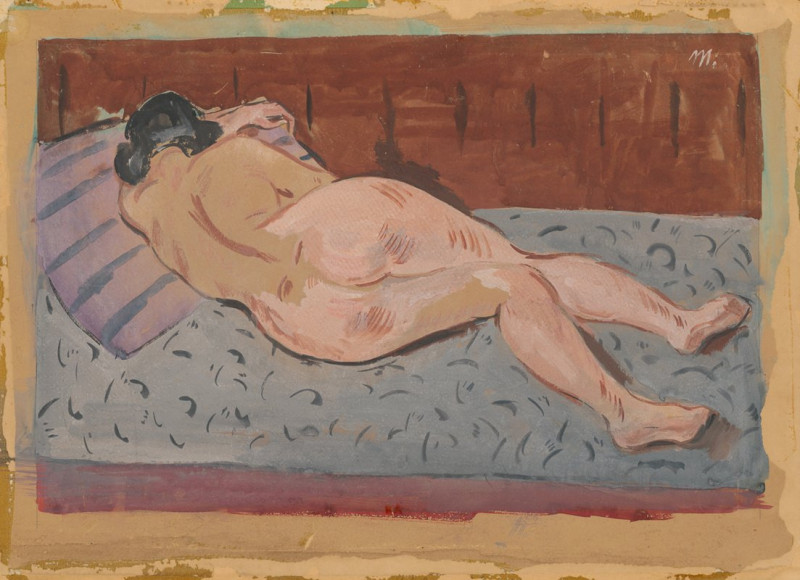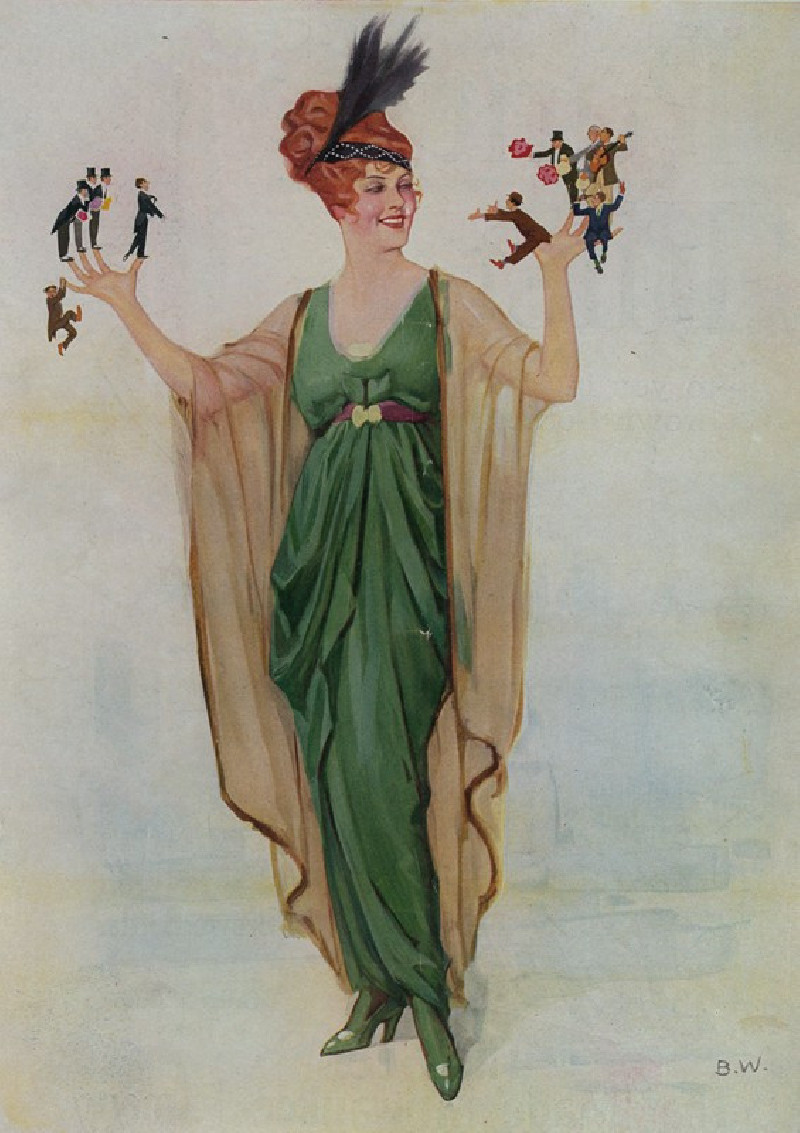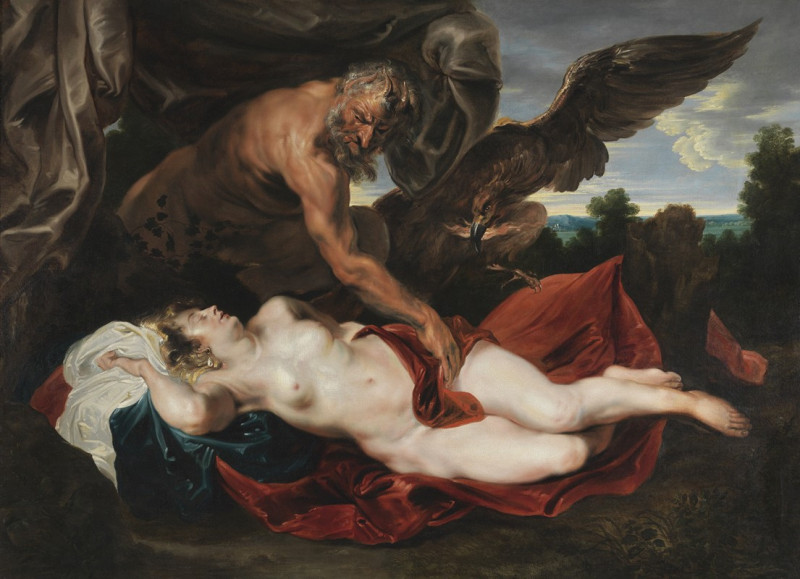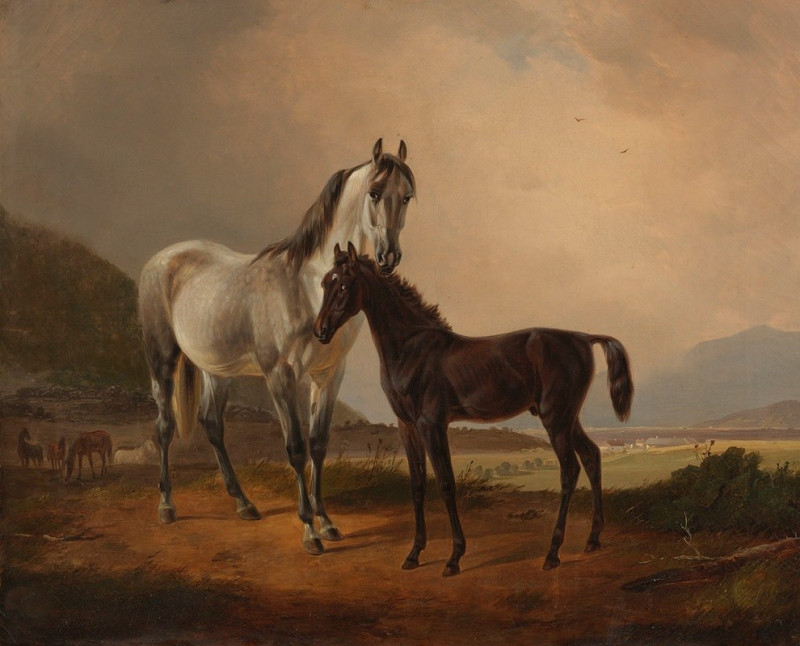Markt (around 1921)
Technique: Giclée quality print
Recommended by our customers
More about this artwork
Discover "Markt" by Karl Wiener, an evocative and colorful interpretation of an urban landscape fashioned around 1921. In this unique piece, Wiener captures the essence of a city market, not through the bustle of people or the clutter of stalls, but through a mesmerizing geometric arrangement of market umbrellas. The canvas is awash in shades of purple and blue, with the umbrellas meticulously placed in almost mathematical precision, creating an array of soft mounds that dominate the foreground.At the periphery, high buildings enclose the scene, sketched in darker tones of black, brown, and deep green, their windows peeking out onto the orderly market space. The contrast between the vibrant, lively colors of the umbrellas and the somber architectural elements that frame them reflects the juxtaposition often found in urban settings between the dynamic energy of communal spaces and the imposing permanence of city infrastructure."Markt" by Karl Wiener invites viewers into a stylized urban landscape, where abstraction and representation blend seamlessly to evoke the rhythm and texture of city life in the early 20th century.

